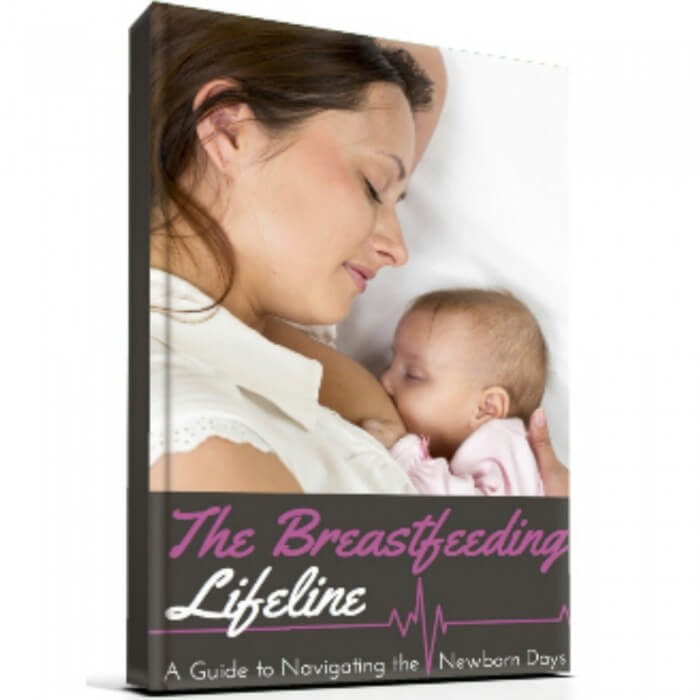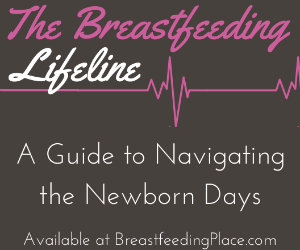 It’s certain that one of the first things most breastfeeding mothers are concerned about is whether or not that precious baby of theirs is really plumping up on mama’s milk alone. I mean, it’s completely understandable to be concerned about this since our breasts are not transparent, nor do they come with tiny amount markers on each one to let us know how much baby is taking in each feeding. But, is there a way to really know for sure how your baby is faring? If you’re curious about whether or not you have enough breast milk for you little one, I’m here to say that you can absolutely know if your baby is thriving by looking at a few key things. I’m going to give you a quick list of my top five favorite signs of a well-fed, content (mostly) baby:
It’s certain that one of the first things most breastfeeding mothers are concerned about is whether or not that precious baby of theirs is really plumping up on mama’s milk alone. I mean, it’s completely understandable to be concerned about this since our breasts are not transparent, nor do they come with tiny amount markers on each one to let us know how much baby is taking in each feeding. But, is there a way to really know for sure how your baby is faring? If you’re curious about whether or not you have enough breast milk for you little one, I’m here to say that you can absolutely know if your baby is thriving by looking at a few key things. I’m going to give you a quick list of my top five favorite signs of a well-fed, content (mostly) baby:
5 Signs You Have Enough Breast Milk
1. Are you changing lots of wets and stools each day?
This first one, in the early weeks, especially in regards to stooling pattern, is key. Once milk has come in plentifully, usually by days 2-3, a baby will begin to increase in wetting and stooling. By day 4-5 they are often urinating 6-8 soaking wet diapers, and stooling a minimum of 3-5, though often much more, larger than a quarter, stools each 24 hours thereafter. Their stools are generally mustard in color and often have little curds in them. It can also be watery looking but still very mustard colored. Wets are usually clear to very pale. If you are unsure of what a wet diaper feels like, take a dry disposable and pour 3-4 tablespoons into it.
2. Is your baby generally content between feedings?
While it is very normal for newborns to fuss and complain throughout the day as they are getting used to life outside the womb, a baby who is otherwise thriving will be able to eat well, then be generally content until the next feeding. Most newborns need to feed between 8-12 or more times in a 24 hour period, generally eating about every 2-3 hours from the start of one feed to the start of the next feed. There is a wide range for normal in behaviors, so this should never be your only gauge for adequate milk intake.
3. Are you having regular weight checks on the same scale, with same clothing, with your pediatrician, or other health care facility?
Weight checks can really help a new mother, tired from sleep deprivation and concern over her new little one, to breathe a sigh of relief. It can also help alert another mother that her baby might need help with breastfeeding, and to contact the appropriate breastfeeding professional such as an IBCLC, board certified lactation consultant. The weight we expect a baby to gain in the first 4 months of life is right at 5-7 ounces a week, so between 1.5-2 pounds a month. Between 4-6 months of age, this can slightly decrease from baby gaining mobility. This chart will help you see the average weight gain patterns for infants. Also remember that what baby is wearing and if the scale is the same as previous weight checks is important. There can be discrepancies between scales that could lead a mother to believe something is wrong, or something is right, when either option could be false. (You can easily purchase a scale, like this one, for weight checks at home.)
4. Is your baby meeting appropriate developmental milestones?
This is where it is helpful to educate yourself on what to expect at your baby’s specific age and development. There are plenty of great websites you can sign up for that will give you a bird’s-eye view into the mind and body of your child. Just do a quick search and you will have your pick of them! One of my favorites was BabyCenter.com. I could put in my child’s birth date and it would email me updates with information on upcoming developmental milestones. There are also a plethora of outstanding infant and child development books available as well. Anything by Dr. William Sears is a win in my book.
5. Are you listening to your mother’s instinct?
I am a firm believer in a mother’s intuition. If you have educated yourself on the feeding and development of your child, and you still feel like something is amiss, there is absolutely nothing wrong with speaking to your baby’s healthcare provider about your concerns. You can also go to your local hospital or birth center’s breastfeeding groups. La Leche League is another worldwide breastfeeding support group that has meetings often. Bring your baby and talk with other mothers as well as the breastfeeding professionals. There is knowledge and power in the experiences of our fellow mothers. Sure, sometimes we have to ‘throw out the bones, and keep the meat’, but I cannot stress enough to utilize the community you are in to the best of your ability.
Still have questions? Post them here or on our Facebook page and we will be glad to help you! Every mother deserves to feel confident her baby is gaining enough weight and doing exceedingly well with breast milk.
Have you ever wondered if you have enough breast milk? What reassured you most?
photo credit: DanielJames via photopin cc
Sharing at My Joy-Filled Life.






To increase milk
1 Litre apple juice
2 Litres water
1 packet of rehidrate black current
1 bottle of berry elixer
Mix and refregirate. Enjoy
Things to help increase milk supply:
1. Pump every 2-4 hours for at least 10-15 minutes on each side
2. Eliminate or minimize intake of milk production inhibitors (medications like Sudafed, tobacco, mint, sage, parsley)
3. Add to diet or increase consumption of these herbs/foods:
– anise, basil, blessed thistle, caraway, chasteberry, cotton, fennel, squawvine, verbena
4. Healthy nursing tea/3x daily and it contains almost all above mentioned herbs.